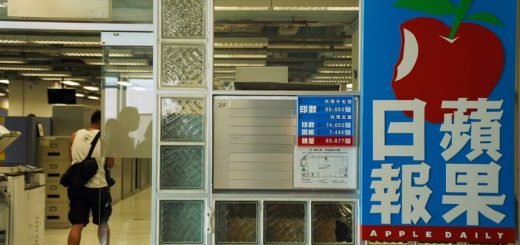IMF warns Nigeria about Chinese debt

The IMF has urged Nigeria to curb its large appetite for Chinese loans as the country struggles with a €70 billion debt burden. That’s up from €62 billion in 2017, representing a year-on-year growth of 12.25 per cent.
Nigeria’s Nation newspaper leads with disturbing revelations the global lender at the ongoing IMF/World Bank Spring Meetings in Washington that loans from China were contracted under concessional terms without consideration of Paris Club debt servicing arrangements.
Trillions of Naira
Vanguard quotes Nigeria’s Debt Management Office as saying that Nigeria’s external loans obtained from China currently stand at 8.5 per cent of its total debt burden.
Daily Trust for its part said Abuja was last year, negotiating an additional €5.3 billion facility from China’s EXIM Bank to fund the construction of the Ibadan-Kano rail line project.
Nigeria spent 50 percent of its revenue from oil on debt payment in 2018, according to Punch newspaper.
Business Hallmark, adds a frightful dimension to the debt controversy. If the amount is divided by the country’s 198 million population, it argues, then each Nigerian owes China 15, 000 Naira.
Beijing earning it both ways
“Most of the funds given out actually go back to them by way of supplies, construction contracts with all the equipment brought over from China itself” states Obadiah Mailafiya, a former Deputy Governor of Nigeria’s Central Bank, who played a key role in Nigeria’s debt relief negotiations with the Paris Club of public creditors in 2005.
The development economist who was a candidate in the 2019 Presidential elections also raises a problem he has with the Bretton Woods institutions. “The Chinese come into places where nobody wants to go”, due to the Western media’s painting of Africa as “a continent of poverty, disease and chaos,” Obadiah Mailafiya said. “That makes it difficult for African countries to go into the euro/dollar markets to source for loans and financing”, he added.
No colaterals
For the Nigerian banker, who is also a former official of the African Development Bank, all the Chinese need is for you to show them where the road or the dam is to be constructed and they get on with it, the EXIM Development Bank of China standing by, to provide the money needed.
Obadiah Mailafiya urges African governments to ensure that they read the small prints of the “conditionalities” defined by the Chinese. In his view that would avoid Beijing laying claim to some of their assets, as they are doing in Madagascar, Kenya, Zambia and Zimbabwe.
Mailafiya also shares “very worrisome” allegations, “hard to prove”, in his words, that the Nigerian government has pledged some oil fields as collaterals for the Chinese loans.


















